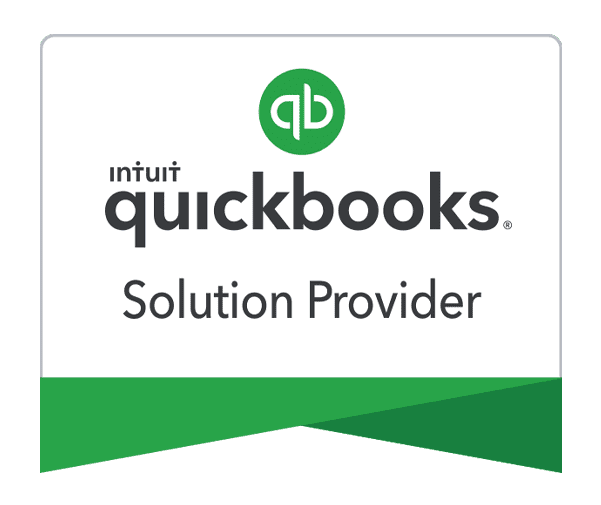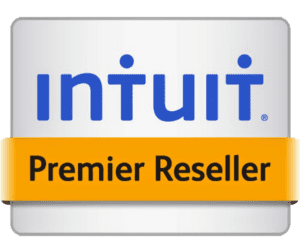Just register for the free trial below and we will send you everything you need to evaluate QuickBooks Online including 30-day access, the full 76-page QuickBooks Online Guide (details everything that you can do in the software) plus the video training library. Free end-to-end consultation and support are included so if you need any help along the way, just let us know!
Reasons to Use QuickBooks Online vs Excel for your Accounting

Paygration, Inc.
Many new small businesses are tempted to use Excel to organize their accounting data and analyze their financial status. It is often used by accountants and bookkeepers who are proficient in using Excel formulas. However, as your business grows, you will realize that you don’t have the time to deal with the manual labor needed to input and track data and that you need to upgrade to complete accounting software like QuickBooks Online.
In this article, we’ll discuss some important reasons why you should use QuickBooks over Excel for your accounting.
What’s Not So Great About Excel?
Although Excel can help with data storage and financial tracking, it is not a full-fledged bookkeeping system like QuickBooks Online. Here are some of the reasons why we don’t recommend Excel for your accounting tasks:
- Excel requires that you formulate your own process. This means you need to be proficient in using formulas and advanced Excel functions—which can be non-intuitive and overwhelming for many business owners.
- You can’t use Excel to create and send invoices to clients. To invoice clients, you need to integrate or use a separate bookkeeping system.
Since you have to enter your data manually, you’re putting your data at risk even if you just make a single mistake. While you can use hundreds of Excel templates, they won’t help you protect your data from manual data entry errors. - Excel is not designed for long-term accounting. As your customers increase and the amount of information grows, you will need a more flexible accounting tool.
Benefits & Features of QuickBooks Online vs Excel
QuickBooks Online is the most widely used accounting system by small and medium-sized businesses. QuickBooks allows you to perform many essential accounting tasks, including invoicing, bill tracking, payment collection, check printing, bank reconciliation, payroll, and reporting.
Below is a list of some of the features and benefits of QuickBooks Online vs Excel.
Invoicing & Payment Collection
With QuickBooks, you can create and send invoices to your clients and set up payment reminders to alert your customers if they don’t pay on time. You can also set up recurring invoices so that you don’t have to send similar invoices one by one. If you upgrade to QuickBooks Online Advanced, you can use Batch Invoicing to speed up your invoicing workflows by 37%
With QuickBooks Payments integrations, you can easily accept payments from clients using credit and debit cards, online payments, and ACH transfers.
If you would like to try the full version of QuickBooks Online Advanced, click here to get a free 30-day no-commitment trial plus access to the full video training library.
Bill Management
QuickBooks has a strong accounts payable (A/P) feature that lets you easily pay bills and manage and track unpaid bills. You can add all your vendors in QuickBooks, create recurring transactions, enter partial payments of invoices, and print checks instead of writing them manually. Many new business owners find it easy to create a bill in QuickBooks. It has a user-friendly window that lets you enter all the important information you need, such as the amount, bill date, and due date.
Banking & Cash Management
Connecting your bank and credit card accounts to QuickBooks makes reconciliation easier. You can easily see if your books are accurate by creating reconciliation reports showing cleared and uncleared transactions. If you’re not comfortable connecting your bank account, then you can manually import your files of transactions.
Reporting Feature
QuickBooks Online lets you create hundreds of reports, including the most important ones, like profit and loss statements, balance sheets, and cash flow statements. For more accurate and versatile data reporting, you should upgrade to QuickBooks Online Advanced. It connects with Excel spreadsheets, called Spreadsheet Sync, so that you can seamlessly send data back and forward between QuickBooks and Excel. This feature allows you to edit and customize your reports in Excel and then sync them back to QuickBooks Advanced, giving you more flexibility while also reducing data entry errors.
Below is a sample cash flow statement report in QuickBooks Online.
Receipt Capture
With QuickBooks, you can take photos of your digital receipts and record them directly within the mobile app. You can then add those expenses to an existing transaction or create a new one.
Sales Tax Management
One of the best things about QuickBooks Online is that it automatically calculates the sales tax rates to apply to an invoice based on product type, customer, and location. If you collect taxable payments from multiple jurisdictions, then you won’t have to manually calculate and adjust the rates.
Payroll
With QuickBooks Payroll integration, you can run unlimited monthly payroll and pay your employees with direct deposits or paper checks. If you select either the Premium or Elite package, then you’ll have the ability to track billable hours and employee paid time off (PTO) through QuickBooks Time.
What Are The Different QuickBooks Online Versions?
QuickBooks Online is available in four plans: Simple Start, Essentials, Plus, and Advanced. Simple Start and Essentials have basic accounting features, like income and expense tracking and invoicing, but if you want advanced functionality, like project profitability tracking and inventory management, you should upgrade to Plus or Advanced. Read our guide to choosing the best QuickBooks Online plan for your small business.
We recommend Advanced for medium to large businesses as it supports up to 25 accounting users and has many useful features for growth and automation, like batch invoicing, advanced reporting, and premium and VIP customer support. Know when you should upgrade to QuickBooks Online Advanced.
















